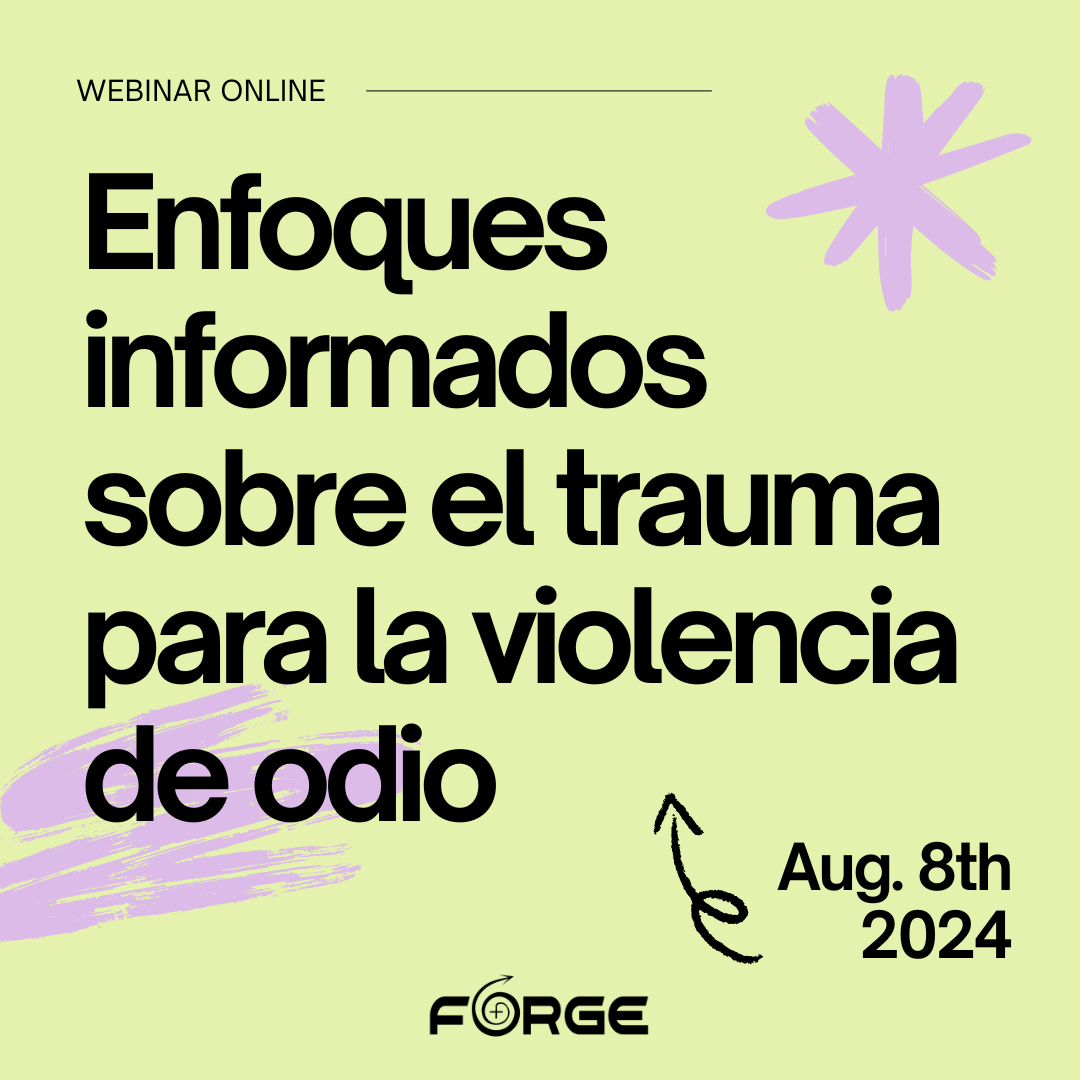Enfoques informados sobre el trauma para la violencia de odio (español)

 Introductory
Introductory  Service Providers
Service Providers Trans Communities
Trans Communities La violencia de odio es traumática. Afecta a los supervivientes, a los socorristas y a todas las comunidades afectadas por el odio. En este seminario web, veremos cómo se pueden aplicar los principios informados sobre el trauma al trabajo que realizamos para abordar la violencia de odio.
Enlaces y recursos en esta webinar
0:00 Bienvenida
2:11 ¿Quién es FORGE?
4:07 El orden del día
7:06 ¿Qué es el trauma?
9:10 Cuando el trauma no termina
12:27 Odio anti-trans sancionado por el Estado
14:55 Estrategias de odio sancionado por el estado
17:49 Discusión: ¿Qué tipos de odio anti-trans está viendo?
20:27 La violencia aumenta con la desigualdad
21:57 Enfoques informados sobre traumas a la violencia de odio
26:07 La violencia de odio es traumática
28:53 Impactos del trauma
33:09 El trauma puede afectar a todos
35:58 Respondiendo al odio anti-trans
42:13 Conexión sanadora
47:34 Resistir la retraumatización
49:51 Discusión: Respuestas de la comunidad al trauma
52:51 Evaluación del programa: preguntas orientadoras
59:58 Principios para este trabajo
1:01:01 Aspectos de la curación
1:03:58 Actúa: Apoya a los supervivientes
1:05:08 Actúa: Planificación de la seguridad
1:06:12 Actúa: Apoya a tu personal
1:08:39 Actúa: Comunícate
1:13:45 Conéctate con FORGE
Grabado el 8 de agosto de 2024.
–
The Institute on Violence, Abuse and Trauma (IVAT) is approved by the American Psychological Association (APA) to sponsor continuing education for psychologists. Institute on Violence, Abuse, and Trauma (IVAT) maintains responsibility for this continuing education program and its content. The California Board of Behavioral Sciences (BBS) now accepts American Psychological Association (APA) continuing education credit for license renewal for LCSWs, LMFTs, LPCCs, and LEPs. Please contact your state board representative if you are not sure if the program will qualify under your regulations.
This project was supported by Grant No. 15PBJA-22-GG-04854-ADVA awarded by the Bureau of Justice Assistance. The Bureau of Justice Assistance is a component of the Department of Justice’s Office of Justice Programs, which also includes the Bureau of Justice Statistics, the National Institute of Justice, the Office of Juvenile Justice and Delinquency Prevention, the Office for Victims of Crime, and the SMART Office. Points of view or opinions in this document are those of the author and do not necessarily represent the official position or policies of the U.S. Department of Justice.
